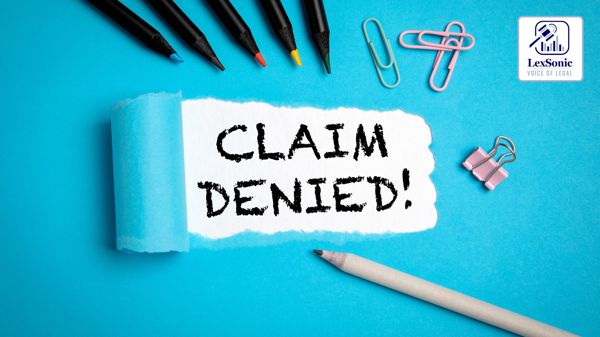Extortion and Exclusion: Insurance Claim Denied for Fire-Damaged Excavator.
11 December 2024
Civil Appeals >> Civil & Consumer Law | Insurance Claim/Money Rejected >> Insurance
The complainant, owner of the excavator, had insured the vehicle from April 12, 2013, to April 11, 2014. The machine was engaged in soil laying work when local influential individuals allegedly demanded "rangdari" (extortion money). Fearing these threats, the complainant parked the excavator at a flour mill in Sikandrabad.

On May 15, 2013, the complainant was informed that the excavator had caught fire and sustained significant damage. An inspection by an authorized service center deemed it a total loss, estimating repair costs far exceeding the insured value. The complainant promptly notified the insurance company and submitted all necessary documents for their claim.
However, the insurance company repudiated the claim, citing two primary reasons: firstly, that the vehicle had been confiscated prior to the policy's commencement on April 12, 2013; and secondly, that the machine was taken under a conspiracy of extortion, which was not covered under the policy terms.
The State Consumer Disputes Redressal Commission, Haryana, had initially partly allowed the complaint. They directed the insurance company to pay the insured declared value (IDV) of Rs. 24,00,000/-, less the salvage value if retained by the complainant, along with compensation for mental agony and litigation costs. The State Commission reasoned that the forceful taking of the vehicle by "unsocial elements" did not equate to "confiscation" by an authority, thus not falling under the policy's exceptions. They also dismissed the surveyor's loss assessment, deeming the depreciation calculation flawed.
The appellate commission found the complainant's wife's attempt during cross-examination to disown the contents of the FIR unconvincing. Based on the FIR and the lack of any evidence to the contrary, the commission concluded that the excavator was not in the complainant's possession from April 9, 2013, until its destruction.
Furthermore, the appellate commission highlighted the principle of "Uberrima Fide" (utmost good faith) that underpins insurance contracts. They held that the complainant's failure to disclose the fact that the excavator was already forcibly taken away at the time of seeking the insurance policy constituted a willful suppression of a material fact. This non-disclosure, the commission argued, would have potentially influenced the insurance company's decision to issue the policy. The commission rejected the argument of implied waiver by the insurance company, citing a legal precedent that an insurer cannot waive information they are unaware of.
This case serves as a reminder of the importance of accurate and complete disclosure when entering into insurance contracts and highlights how the specific circumstances surrounding a loss are crucial in determining insurance liability. The interpretation of policy exceptions and the principle of utmost good faith played significant roles in the final outcome of this dispute.
